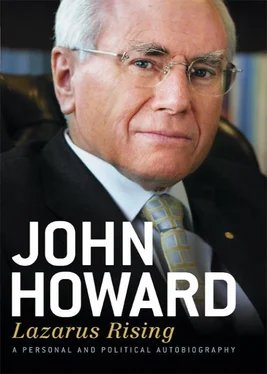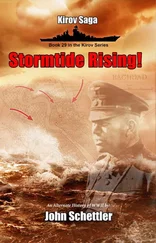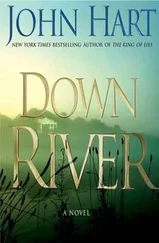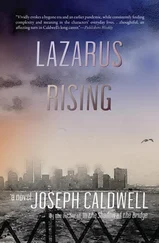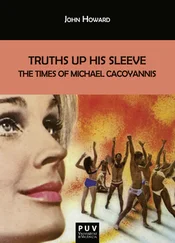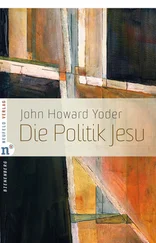Fraser correctly concluded that Lynch had to stand aside as Treasurer, leaving his future to be resolved after the election in the event of the Government being returned. But the way in which he achieved this disclosed real flaws in Fraser’s handling of people.
Sensibly Fraser should have gone to see Lynch in hospital and talked to him directly in the presence of the party president and federal director. Instead he sent Peter Nixon, a senior National Party man, to do the job. Nixon was close to Fraser, tough, honest and skilful, but here Fraser was dealing with his own deputy. He should have been personally engaged.
On Friday 18 November 1977, after a rather tortured six- or seven-hour period of negotiations between Malcolm Fraser, who was in the Commonwealth Parliamentary Offices in Martin Place in Sydney, and Phillip Lynch, who was in hospital on the Mornington Peninsula, Lynch agreed, reluctantly, to stand aside as Treasurer, though he would stay as Deputy Leader.
Almost all of Fraser’s messages to Phillip Lynch were delivered by other people. Resentment against Fraser by Lynch’s many followers, such as Fred Chaney and John Hyde, grew out of his mishandling of this situation. He would display similar clumsiness in handling a problem with Reg Withers a few months later, resulting in Withers leaving the Government and a lasting estrangement between the two men.
As acting Treasurer I thought that I might end up as Treasurer, albeit on a temporary basis, in the event of Lynch standing aside. That was the press speculation, although Fraser never canvassed the matter with me. It wasn’t until Alan Carmody, Secretary of the Department of Prime Minister and Cabinet, said to me, after Lynch had agreed to go as Treasurer, ‘The swearing in will be at Admiralty House on Saturday at 4 pm’ that I realised that I would replace Lynch as Treasurer.
It had been an amazing day, indeed a series of amazing days. During the weekend, Janette told me that late on Friday afternoon, Sir Frederick Wheeler, the Secretary of the Treasury, had rung our home saying, ‘May I speak to the Treasurer?’ Janette deflected his enquiry by telling him that he wasn’t at home. This incident validates a long-held view in Australian politics that public servants and Commonwealth car drivers always know important things well in advance of the politicians.
I was excited about what had happened, but I didn’t believe that I was Treasurer for other than an interim period. I assumed that after the election, the Phillip Lynch issue would be resolved and I would return to some other, lesser, portfolio.
Meanwhile, my main concern was not to drop the ball on economic issues during the campaign. At that stage, despite our enormous majority, the Government was travelling badly, having been diverted by the Lynch Affair for several weeks and facing a public quite apathetic towards what we regarded as important campaign issues.
There was a further complication for me personally. Our second child, our elder son, Tim, was actually due on the very day that I was sworn in as Treasurer. He took his time, not arriving until 25 November. The events of these hectic weeks, coming on top of my prolonged absence overseas during the latter stages of Janette’s pregnancy, had put a lot of pressure on her, which she handled quite remarkably. I was sworn in as Treasurer at Admiralty House in Sydney by the Governor-General, Sir John Kerr. Afterwards, Malcolm Fraser and I went on what was reported as a pub crawl, although from recollection we visited only one hotel, namely the Kirribilli local. Fraser was relaxed, and engaged in easy chit-chat with the locals. These were pre-mobile phone days, and the best that I could do to keep in touch with Janette was for my Commonwealth car driver, Bob Jenkins, who was at the hotel, to ring Janette periodically to check on her condition and report to me.
With the Lynch issue out of the way the campaign returned to what it always should have been about, namely whether or not Australians would re-elect a Whitlam Government. Once this became the principal issue, it was only a matter of time before the polls turned, and ultimately the Government won.
I had two major one-on-one debates during the campaign. The first was an ABC Monday Conference interview chaired by the late Bob Moore, immediately following Malcolm Fraser’s policy speech in Melbourne. My opponent was Tom Uren, the Deputy Leader of the Opposition. The second debate was against Bill Hayden, who had been Whitlam’s Treasurer. This was an appearance on the ABC’s This Day Tonight program, and it was chaired by George Negus. These two debates were regarded as key events in the campaign, and the fact that I was judged to have won them convincingly did my reputation no harm at all.
The Fraser Government was returned on 10 December 1977 with a majority of 48 seats, only a fraction less than the record margin of 55 achieved two years before. It was an impressive result given the size of the 1975 majority. In retrospect, of course, there was never a chance that Whitlam would get re-elected. He gave a dignified speech on the night of the election, which ended his remarkable career at the top of the Labor Party.
To this day, Whitlam remains a legendary figure to devoted followers of the Labor Party and others in the community. Nobody can doubt his flair and style, his considerable sense of humour and his erudition. He did something for the Labor Party which seemed for so many years unattainable. He won government. Having won government, he proved to be a very poor Prime Minister. Sentimentality towards him should not smother that reality.
After the election Fraser did what I suspected might happen. Having made some positive comments about my efforts during the campaign, he kept me as Treasurer but gave the finance portfolio to a separate minister. Like Phillip Lynch, I had administered both portfolios from the time of my appointment as Treasurer.
Before any of this occurred, he had to resolve Phillip Lynch’s position. Phillip’s health had been restored, and he had easily retained his seat of Flinders. Stephen Charles, a well-regarded Melbourne silk, had prepared a report on Lynch’s financial affairs, clearing him of any wrongdoing. Fraser called an ad hoc meeting, including Charles, Reg Withers, government leader in the Senate, Senator Fred Chaney and me. Although Charles had given Lynch a clean bill of health, Fraser was querulous at the meeting. He questioned one particular transaction, which, to me, seemed quite normal. When asked my opinion I said so. Reg Withers had the same view. That seemed to end the matter.
Lynch remained as deputy leader, but opted to become Minister for Industry and Commerce, specifically ringing and telling me that this is what he wanted. Thus, at the age of 38 years and 4 months, I became, unconditionally, Treasurer of the Commonwealth.
Again, I had every reason to be grateful to Malcolm Fraser for giving me what was a huge promotion.
Being Treasurer gave me access to the best concentration of brains in the federal bureaucracy. There are plenty of other departments with extremely talented people, but for concentration of brain power, the Treasury is hard to beat. The dominant figures in the Treasury at that time were Sir Frederick Wheeler as secretary and John Stone, the deputy secretary (economic). Wheeler was, with Sir Arthur Tange, Secretary of the Department of Defence, the last of the traditional mandarins of the federal public service. I liked Wheeler a lot.
I admired the way in which he had stood up for due process at the time of the Khemlani Affair, in the Whitlam years. He was tough and cunning and a firm believer in the independent sanctity, if I can put it that way, of the federal bureaucracy and most particularly the Treasury. His minutes were succinctly and strongly written. For all that he no doubt had the view that Treasurers came and went but the Treasury went on forever, I always thought he would give me advice that he believed was in the national interest. He was also a heavy smoker, and that suited me at the time because I was still addicted to the habit.
Читать дальше
